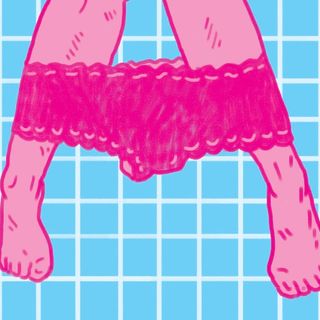
Women’s Mental Load Linked to Distress, Dissatisfaction, Study Finds
It’s not just about who’s doing the chores — it’s about who is keeping track of them all.

A new study has attempted to quantify women’s mental load and parse its effects on the well-being of mothers, concluding that the burden of mental and emotional labor can erode the emotional resources required to care for themselves and their families.
It’s been two years since the French comic artist Emma introduced the world to the concept of ‘mental load.’ In that time, the planning, organizing, corralling, emotional supporting, remembering and reminding responsibilities of family life, which disproportionately fall on women, have increasingly become a topic of conversation — and research.
In the new study, researchers found that ninety percent of the hundreds of women studied felt solely responsible for organizing family schedules; eight in 10 women were the primary point of contact with their children’s school; seven in 10 also felt solely responsible for maintaining routines and assigning chores; and two-thirds felt primarily responsible for being attuned toward their children’s emotional well-being.
Oh, and 65% of these women were also employed.
Related on The Swaddle:
Urban Women Spend 312 Minutes a Day in Unpaid Carework; Men Spend 29
This invisible labor, especially the role of primary responsibility for children’s well-being, strongly predicted women’s own emotional distress, feelings of emptiness, and less satisfaction with their relationship and life in general.
“Sole responsibility for household management showed links with moms’ distress levels — but with the almost 90% of women feeling solely responsible, there was not enough variability in the data to detect whether this association was statistically significant,” said Suniya Luthar, the study’s senior author and a professor of psychology at Arizona State University. “At the same time, there’s no question that constant juggling and multi-tasking at home negatively affects mental health.”
Related on The Swaddle:
It’s a finding that resonates in a country where women do 10 times more physical carework than men — presumably on top of bearing the brunt of this invisible, mental carework. India’s division of carework is far more disparate than the global average, which sees women doing three times the amount of physical carework than men do. (In the Americas, which includes the US where this latest study took place, women do roughly double the physical carework that men do.) Add to that the burden of invisible mental carework, and the finding that Indian women are the most stressed women in the world suddenly seems obvious.
India is starting to wake up to the burden of unpaid physical carework shouldered by its women; the government last year announced plans to quantify the time women spend on unpaid work in the home. It remains to be seen whether and how it will address the invisible burden of mental carework they bear, too — or if it even can. Mindsets are difficult to change, and given that this issue involves battling two stigmas — challenging gender roles, as well as acknowledging and supporting mental and emotional distress — it’s a steep ask. Still, there are policies that could give individuals the opportunity to reset norms in a way that eases the inequity of both physical and mental household carework. The first one that comes to mind is the one advocated by Emma, in her mental load comic: “For a start, it would be good if fathers insisted on their right to be with their family in the first months of their child’s life.” Ironically, the task of advocating for equal parental leave typically falls on women — adding to unequal mental burden already in place.
Related on The Swaddle:
Study Reveals the Physical Toll of Working Motherhood
Without change, the result will continue to be abysmal rates of women participating in the workforce, perpetuating women’s financial dependence and broader gender inequity. If that’s not enough to move society, there’s also the effects that women’s mental load has on the next generation.
“When mothers feel supported, they can have the emotional resources to cope well with the demands they face,” said the study’s first author, Lucia Ciciolla, an assistant professor of psychology at Oklahoma State University. “Being able to address inequalities in invisible labor can allow women and families to create households that are more functional and less burdensome, and can also spare women mental gymnastics to find the space and time to care for themselves.”
Liesl Goecker is The Swaddle's managing editor.
Related


What Women Think Of Egg Freezing
